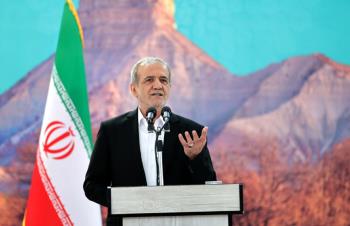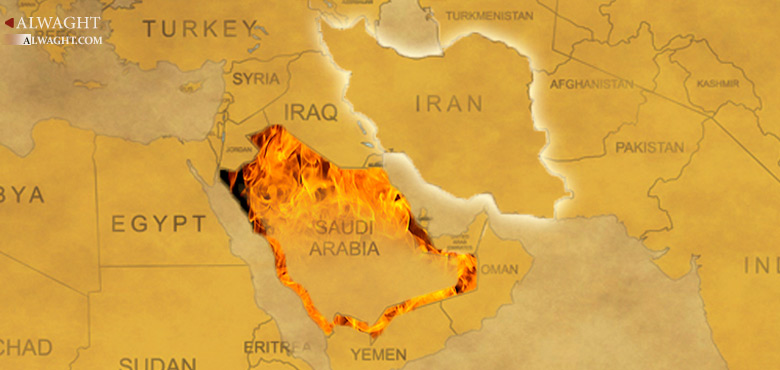Alwaght- Riyadh cut its diplomatic ties with Tehran after events following the execution of Sheikh Nimr in Saudi Arabia and the attack on Saudi embassy in Tehran, an issue that requires further analysis. Although the Iranian government condemned the self-willed action of those who attacked the Saudi embassy, the tensions between Riyadh and Tehran relations have heightened and this time Saudi Arabia succeeded to throw the ball in to Iran’s court, and attributed the disputes between these two countries to all Arab countries, and created an alliance against Iran. That is why other countries such as Bahrain, Sudan, Egypt, Jordan, etc., followed Saudi Arabia and cut their diplomatic relations with Tehran. Perhaps, Saudi Arabia never imagined that the execution of Sheikh Nimr may provoke such great sentiments among Iranians and provide an excuse for blaming Iran. Nevertheless, Saudis seized the chance and made attempts to isolate Iran. Saudi Arabia may have some reasons for these measures that are as follows:
First, ideologically, Wahhabi Sunnis have the least commonalities with the Shiites, and even some Wahhabi scholars believe it is an act of Jihad for a Wahhabi to kill Shiites. Different ideologies has led to fierce opposition between two countries, and except for a period when Nixon's policy of two pillars were being implemented in the region, there were little friendly relations between the two countries.
Second, since the adoption of the two-pillar policy of Nixon, and as the US granted its support for Saudis, Saudi Arabia has always considered itself a regional power and has reacted to any opposing the balanced power. To possess the holy places and mosques of the Muslims, has also prompted the idea of supremacy among the Saudis.
Third, Iran as the largest Shiite country has always supported the Shiites in different parts of the world. Regardless of the number of Saudi Shiites, sectarian wars in other Arab countries have made Saudi Arabia believe that Iran is the main suspect in inciting the Shiite. As Saudi Shiites enjoy a strategic position in the country and can control oil rich regions of this country, this issue is particularly important for Saudis.
Fourth, developments in Iraq and Syria happen in a way that serve the interests of Iran more than any other country. The rise of Shiites to power in Iraq, and the strengthening of the Kurds who are ethnically closer to Iran, the entry of Russia in to Syrian crisis are in line with the interests of Iran. Besides, the military success of Syrian and Iraqi armies in liberating parts of their territory, are all among the factors that have aroused fear in Saudi authorities.
Fifth, the fact that international sanctions against Iran would soon be lifted, and it would make way for relative improvement of Iran’s relations with the West have convinced the Arab countries that Iran could engender their position, and Iran can easily advance its regional policies.
Sixth, domestic issues in Saudi Arabia, military attacks against Yemen and the likely empowering of terrorist movements in the region would regionally and internationally taint the position of the Saudi Arabia. The incidents of raping two Iranian teenagers and heavy casualties of Mena catastrophe whose main victims were the Iranians, helped Iran to further undermine the public image of Saudi Arabia. The current action could also be considered a retaliatory move.
Seventh and perhaps the most important reason is that Saudi Arabia is engaged in several fronts in the region in all of which Iran's spiritual role is significantly remarkable. Military conflict with Yemeni Ansarullah, military intervention in Bahrain whose population is mainly Shia, and crisis in Syria and Iraq whose Shiite government are backed by Iran are some instances. Accordingly, Saudi Arabia is worried about the rise of Shia in to power in the region and it is thinking about preventing this from happening. Riyadh believes, to cut diplomatic ties with Iran and forming an alliance among the Arab Sunnis could easily serve the Saudi goals. On the one hand, Iran is believed to be a threat that make the Arab countries become united with Saudi Arabia as their senior brother and reinforces the image of Saudi Arabia in the region, and isolate Iran on the other hand. Under these circumstances, Iran have to consciously deal with the issue and try to reduce the tensions, and move away any retaliatory measures to where that may have the least consequences for Iran.
Saudi Arabia seeks to provoke religious strife and make way for further crises in the region. Therefore, in current situation Iran should give the first priority to its regional goals and then address the marginal issues. Efforts made to ensure security and marginalize the issue in order to bring it under control might prove useful.



























